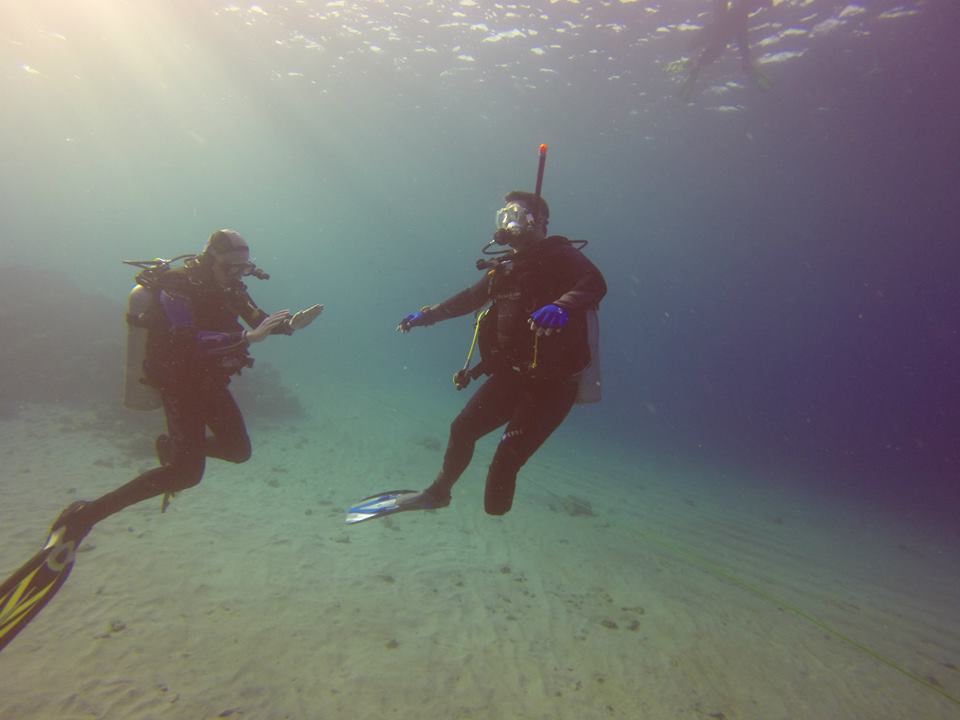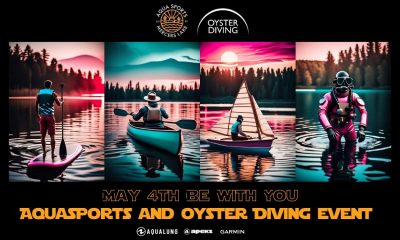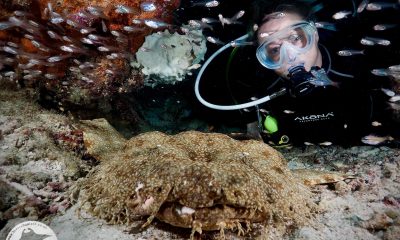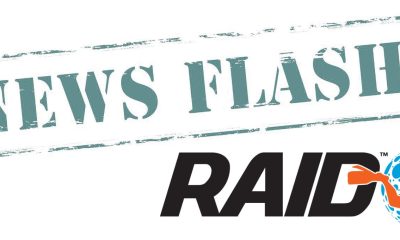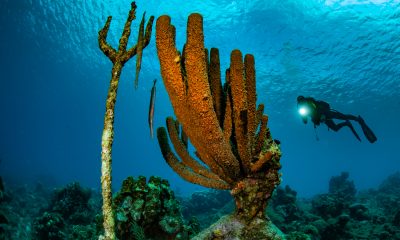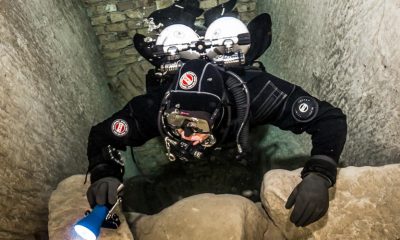News
Scuba Diving in Rehab
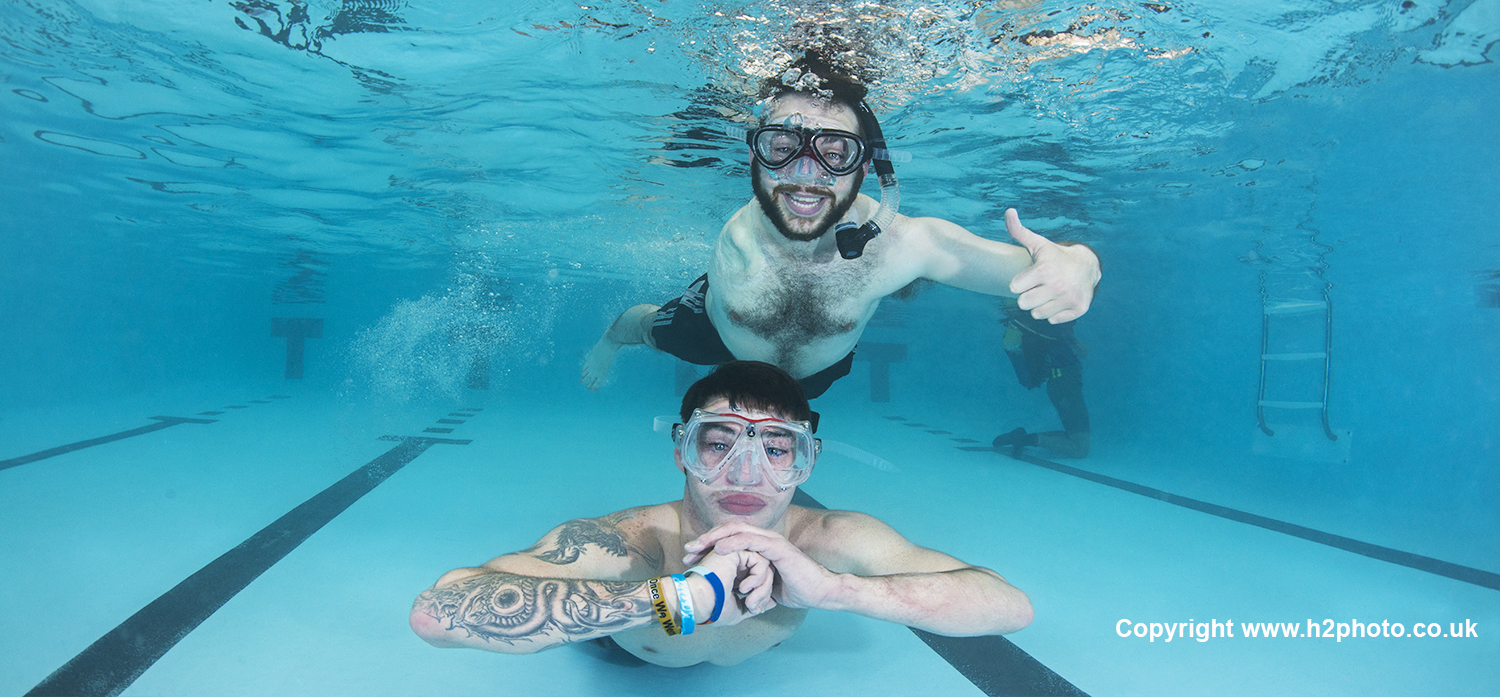
Last year, whilst taking part in the 2015 Miss Scuba UK competition, I had the pleasure of being introduced to Richard Cullen, the Chairman and life vice president of the charity ‘Deptherapy’, a charity that seeks to run specially adapted scuba diving programmes to aid seriously injured UK veterans.
I was introduced to veteran Danny Martin, who told me that on returning from Afghan, he was diagnosed with Stage 3 testicular cancer, which meant that he had to undergo lifesaving surgery to remove the affected cancer masses. After trying to cope with both the trauma of returning from war and a serious cancer diagnosis within months of each other, it’s not surprising that Danny was diagnosed with post traumatic stress disorder. In his words, “I went down a very dark road, turning mean, angry, and frustrated, and it got to a point where I was on the brink of losing everything, including my wife, my kids, and my house. I couldn’t take life any longer.”
The team at Deptherapy were alerted to the issues Danny was facing, and gave him round the clock help in the form of talking therapies for weeks on end. They offered Danny a trip to Egypt to complete a diving course, a sport that he had never tried before. He described the experience as life changing, and said that being under the water cleared his mind of the problems consistently running through his head.
I also met Chris Baker, a disabled Army Veteran who was injured by an IED in Iraq. He had sustained extensive and complicated injuries, and due to crippling pain and a state of mental collapse on realising he would never walk again (after previously living a very active lifestyle), he was confined to his bed for almost 5 years. I was shocked at the extent of Chris’s spinal injuries, and the horrendous mental health issues that both Danny and Chris had faced after returning from war, but after further reading I have discovered that they are certainly not alone.
The combination of modern warfare and modern medicine has led to a rise in injured veterans returning home. Between 2006 and 2013, a total of 6,663 UK personnel were aero-medically evacuated from Afghanistan on medical grounds (Gov.co.uk accessed December 15). This obviously represents a unique challenge for healthcare professionals in caring for both the physical and mental aspects of their rehabilitation.
In terms of the mental health implications, a report by the Ministry of defence in 2013 stated 1.8% of servicemen were diagnosed with post traumatic stress disorder (PTSD), and being a student Doctor having previously spent time in traumatic injury units, I have seen first hand the ongoing struggles associated with the standard rehabilitation process. Treatments currently available for PTSD include counselling, CBT and in some cases anti depressant medication (NHS 2015). However, as with most drugs these have unwanted side effects. The sort of symptoms specifically seen in veterans with PTSD can be impaired concentration and difficulty in impulse control (Arnsten A, 2015). Alongside the standard treatments, alternative therapies such as holistic treatments (acupuncture, hypnotherapy, meditation and yoga) are also sometimes used to manage the condition (US Department of veteran’s affairs, 2015).
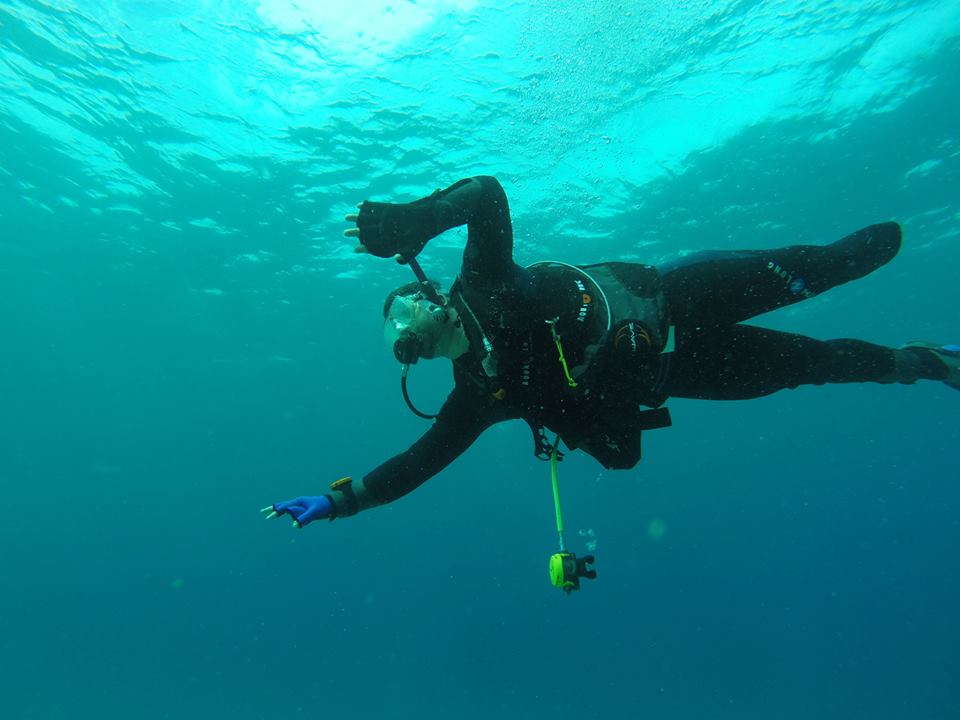
The feeling of weightlessness and the independent mobility that scuba diving provides can offer positive rehabilitative benefits for those suffering with PTSD
After speaking to Chris and Danny, it was clear to me that the benefits of using scuba diving as a form of rehabilitation for veterans were just too vast to ignore, and I was sure that there must have been other people out there reporting these same benefits. In an effort to understand this more, I scoured the medical databases for previous research on this subject, and was amazed at what I found….
Despite the recent growing interest in the rehabilitative benefits of scuba diving from the disabled population (Cheng J 2005), in the past, physicians prohibited patients with neuromuscular disease or disability from participating in scuba diving (Madorsky JG 1988). This was because of the widespread belief at the time that allowing someone who is not ‘able bodied’ to take part in such a perceived risky sport was dangerous; however, in 1992 a research paper by Muller showed that participants classed as ‘disabled’ had no difficulties while taking part in a scuba diving course, therefore showing no reason to create a blanket exclusion for disabled individuals. The report in fact actually highlighted the opportunities that SCUBA diving affords this group, like moving without assistive devices in a gravity-free environment. He uses the experience of a person with T10 paraplegia to illustrate the benefits of completing specific scuba diving certifications, and thus believes these benefits could be extrapolated to a wide variety of disabilities such as paraplegia, quadriplegia and amputation.
Spasticity is a common symptom of paraplegics and has a massively detrimental effect on quality of life, and is usually treated with pharmaceuticals (such as baclofen); however, these medications lead to extreme side effects such as drowsiness or fatigue. Haydn et al (2007) showed that SCUBA rehabilitation of disabled patients improved their spasticity, and this research showed that dosages of baclofen could then be lowered. These findings are by no means one-off’s; there have been several similar studies showing comparable results going back to a paper by Williamson in 1984.
Mueller M. in 1992 conducted a survey of 27 disabled SCUBA divers, and 84% noted significant psychological improvements (increases in self-confidence and better community integration) from learning to dive, and research carried out by Carin-Levy G and Jones D in 2007 reported that disabled respondents indicated that diving is a challenging, enjoyable activity that enhances their quality of life through enriching social experiences and improved self-concept. Furthermore, subjects stressed that carrying out the activity in a buoyant environment allowed them to feel weightless, thus free from their impairments and equal to non-disabled divers. Hemelryck and his team did some research in 2014 to see if SCUBA diving had any detrimental effects on cognitive function (such as reaction time). In this research over a 100 SCUBA divers had their cognition assessed and it was found that SCUBA diving has no detrimental effects on cognitive ability.
Understandably it is still however mindful to appreciate individuals with disabilities may need specialist adaptations in kit or protocol when diving, and even Williamson discussed way back in 1984 that although the current general guidelines for the medical assessment of non-disabled divers appears to be suitable for disabled persons, additionally each particular disability demands careful individual assessment; and later in 1987, a paper by Carol discussed the importance of utilising correct safety precautions such as avoiding abrasions in insensate extremities, and also protection against sunburn or chilling by wearing the correct personal protective equipment.
Looking at the evidence available, it seems that today’s Doctors should be encouraged to support those individuals who wish to explore the submerged two thirds of our planet for its potential rehabilitative opportunities, and until scientific data can demonstrate actual increased medical risk, the psychologic benefits of diving for the disabled appear to outweigh the risks.
Furthermore, personal attributes such as the desire for order, risk seeking behaviour and/or goal orientated behaviour are important characteristics that need to be taken into consideration when tailoring a person’s therapy, as shown by RM Scarified 2013, who speaks about service men and women and how they intrinsically seek and enjoy regime, danger, risks and reward. I believe this is why SCUBA diving provides an amazing rehabilitative treatment of choice for our injured service men and women. And as one of the next generation of Doctors, I will be supporting research in this area 100%.
References
Arnsten A, Raskind M,. Taylor F, Connor D. (2015) The effects of stress exposure on prefrontal cortex: Translating basic research into successful treatments for post-traumatic stress disorder. Neurobiology of stress. 1 , 10, pp89-99.
Carin-Levy G and Jones D. (2007) Psychosocial aspects of scuba diving for people with physical disabilities: An occupational science perspective. Canadian Journal of Occupational Therapy. 74,1, pp.6-14
Carroll JF ( 1987). Scuba diving with disabilities. Sports Spokes. 62,13, pp 45-47
Cheng J and Diamond M. (2005) SCUBA diving for individuals with disabilities. American Journal of physical medicine & Rehabilitation. 84,5,pp369-375.
Deptherapy. 2015. Deptherapy blog. [ONLINE] Available at: http://www.deptherapy.co.uk [Accessed 07 December 15].
Haydn T, Brenneis C, Schmutzhard J, Gerstenbrand F, Saltuan L, Schmutzhard E.( 2007) Scuba diving — a therapeutic option for patients with paraplegia. Journal of Neuropsychiatry and clinical neurosciences. 21, 3, pp226-229.
Hemelryck W, Germonpré P Papadopoulou V, Rozloznik, M, Balestra C. (2014) Long term effects of recreational SCUBA diving on higher cognitive function. Scandanavian journal of medicine and science in sports. 24, 6, pp928-934.
Madorsky JG, Madorsky AG (1988).Scuba diving: taking the wheelchair out of wheelchair sports. Archive Physical Medicine and Rehabilitation. 69, 3, pp215-8.
Ministry of Defence. 2013. Freedom of information regarding PTSD . [ONLINE] Available at: https://www.gov.uk/government/uploads/system/uploads/attachment_data/file/261187/PUBLIC_1383036796.pdf. [Accessed 07 December 15].
Mueller M. (1992). Psychological benefits of scuba diving in the disabled: A survey. Archives of Physical Medicine and Rehabilitation. 73, 10, pp1014.
Blogs
TRAVEL BLOG: Jeff Goodman Dives SOMABAY, Part 3

Today we are diving one of the outer reefs from an inflatable. As we reach the bottom, a reef octopus eases its way into the cover of a small crack in the coral while displaying it’s incredible ability to change colour. They are arguably one of the most charismatic of reef dwellers and it is always exciting for me to simply hover and watch. I would have spent longer and waited for it to come and investigate me, but as dive time is limited we wanted to move on and find a turtle.
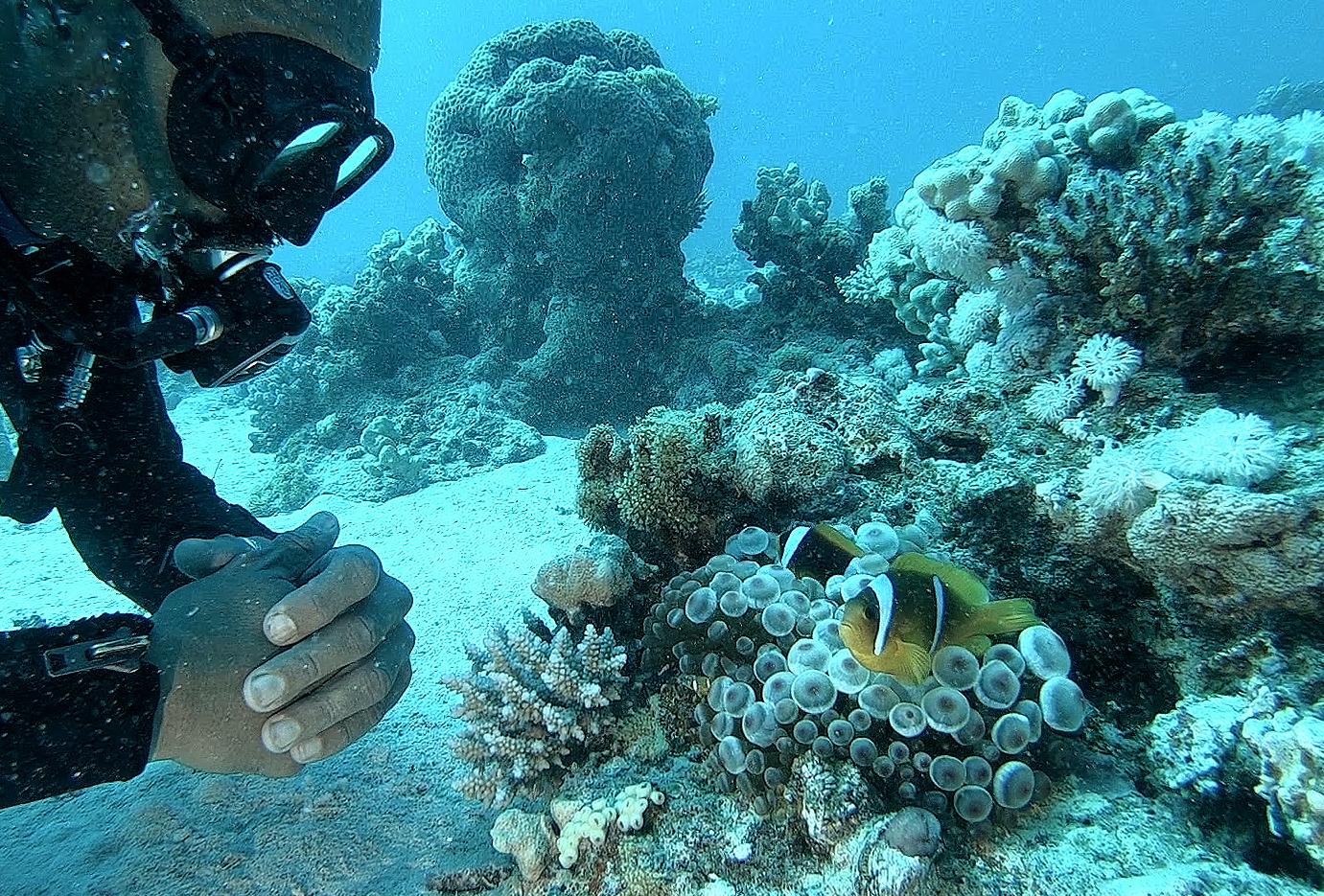
The waters around Somabay are well protected and hold a rich variety of marine life. The reef edges are thriving colonies of coral and shoaling fish, while nearer the sea bed plenty of wildlife is still to be found.
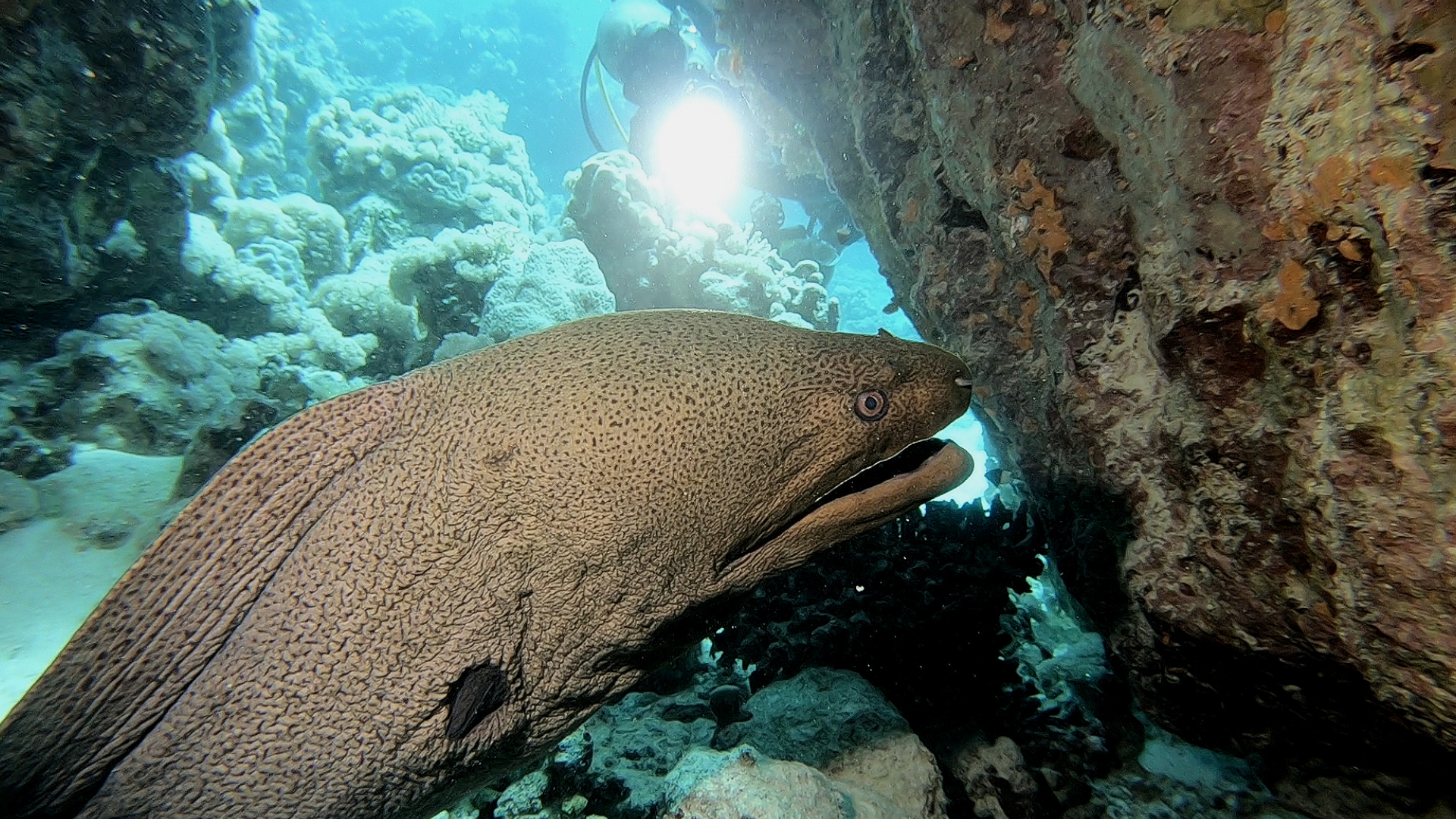
Then we located the turtles. They are very used to divers and so show little concern when slowly approached. In fact occasionally one will come over to see what you are doing. There is always huge excitement when diving with a turtle. The shear thrill of sharing a moment with another species.
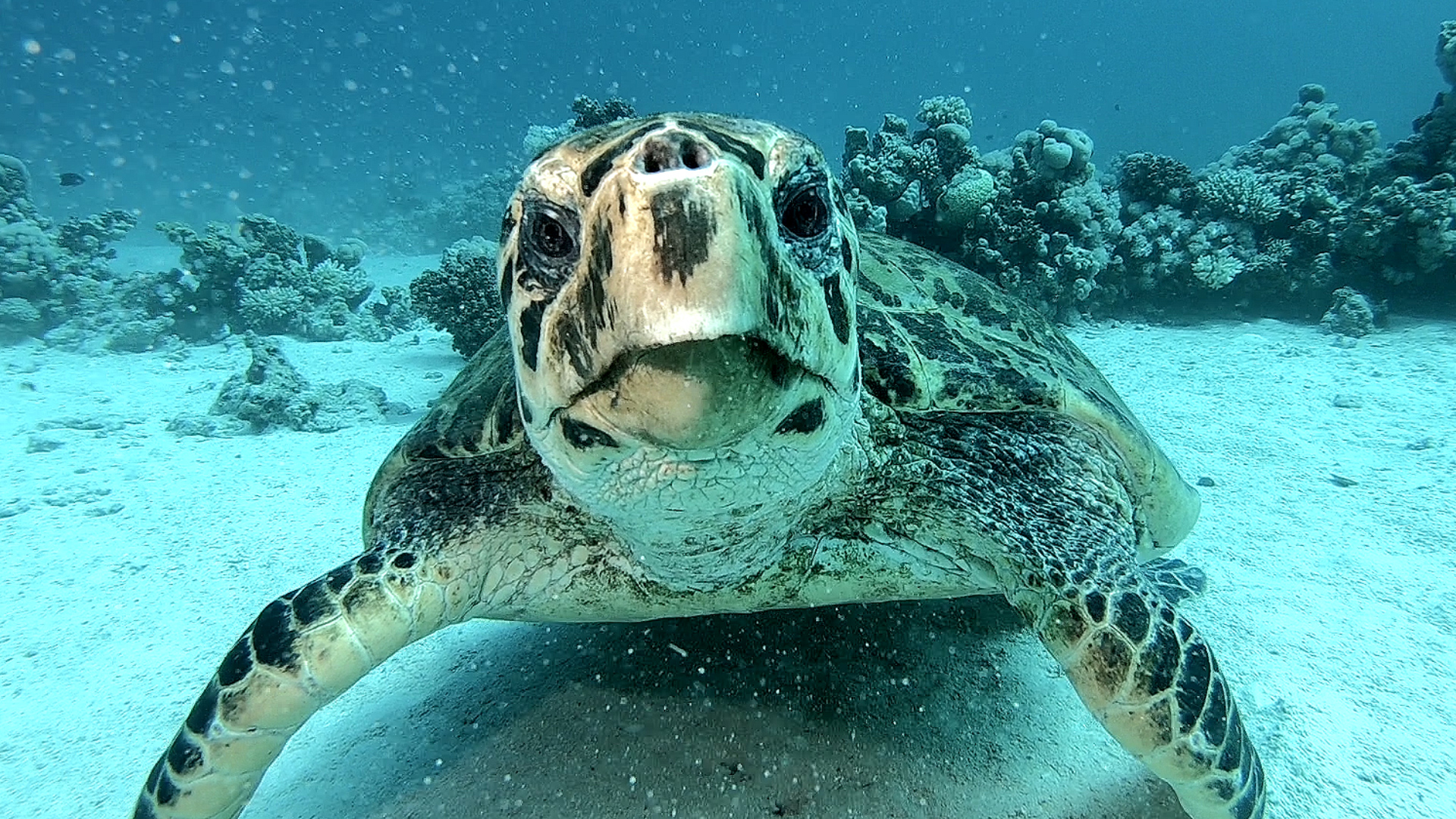
What a fantastic way to finish a wonderful few days diving and I would like to thank SOMABAY, ORCA DIVING and THE BREAKERS for making my stay such a good one.
I had a great time, with diving everyday either on the house reef or on one of the offshore reefs by inflatable or larger day boat. Orca diving provided high quality equipment and facilities while the staff were all very friendly and welcoming. The Breakers was right on the coast with nice rooms, good food and once again friendly staff making the whole trip a real pleasure.
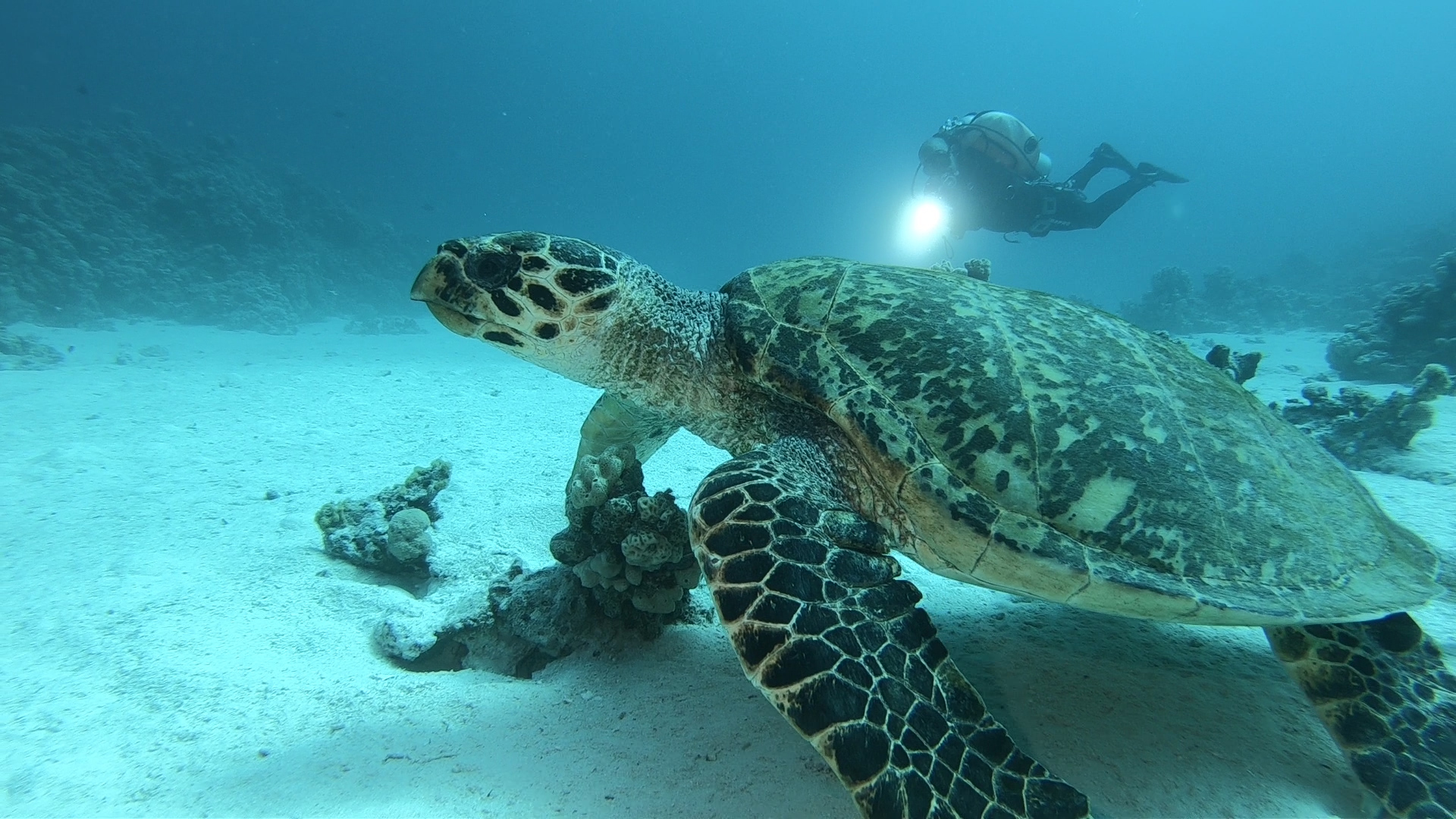
Soma Bay covers an entire peninsula and is home to several resorts as well as residential compounds.
As well as scuba diving, Somabay caters for many other sports and activities, and so is perfect for families as well as individuals and/or groups. And of course there is always time to lay peacefully on the beach under the Egyptian sun.
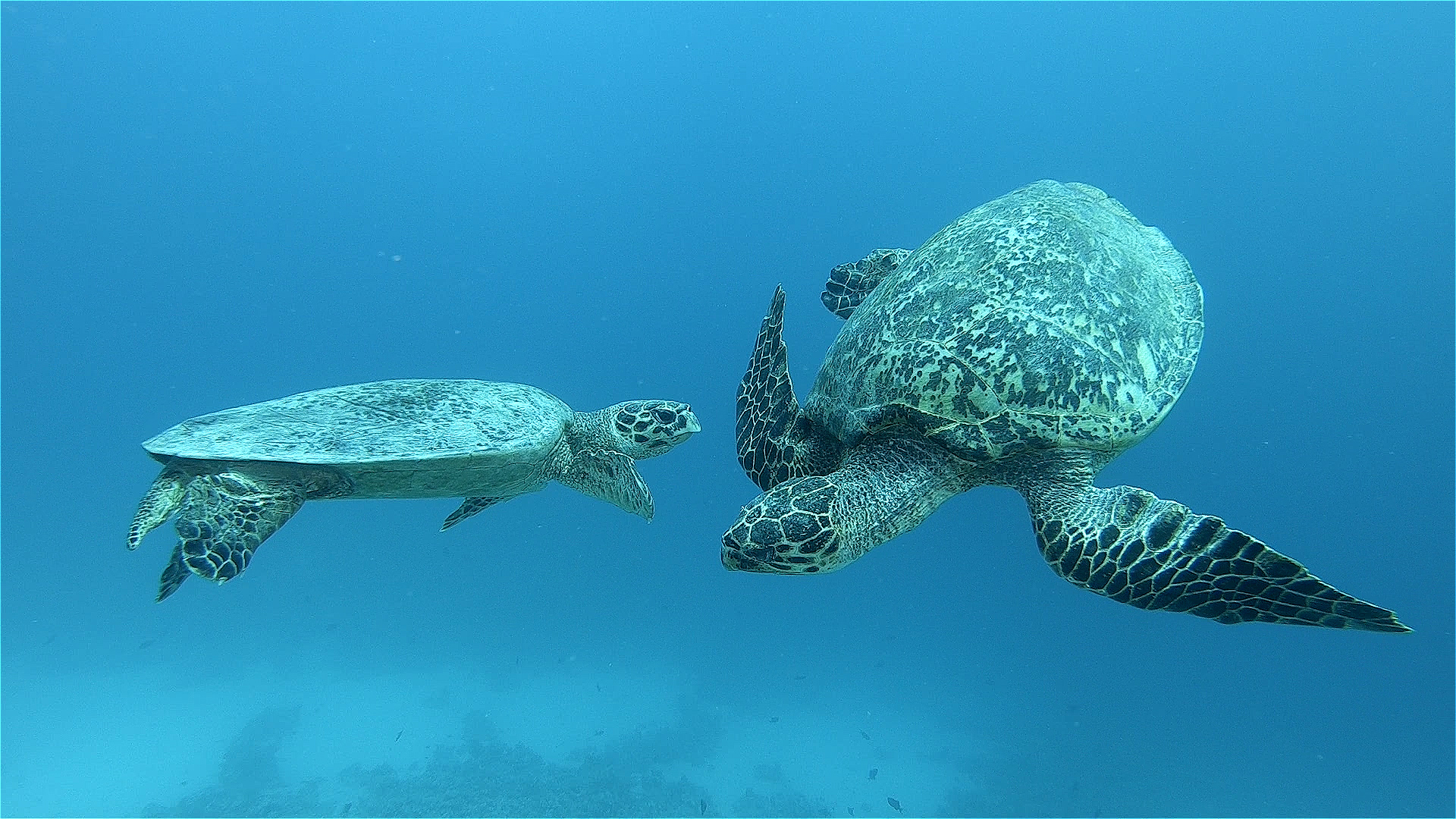
Book your next Red Sea dive adventure with SOMABAY! For more information, visit www.somabay.com.
Stay at the Breakers Diving & Surfing Lodge when you visit! For more information, visit www.thebreakers-somabay.com.
Find out more about ORCA Dive Clubs at SOMABAY at www.orca-diveclubs.com/en/soma-bay-en.
Blogs
TRAVEL BLOG: Jeff Goodman Dives SOMABAY, Part 2
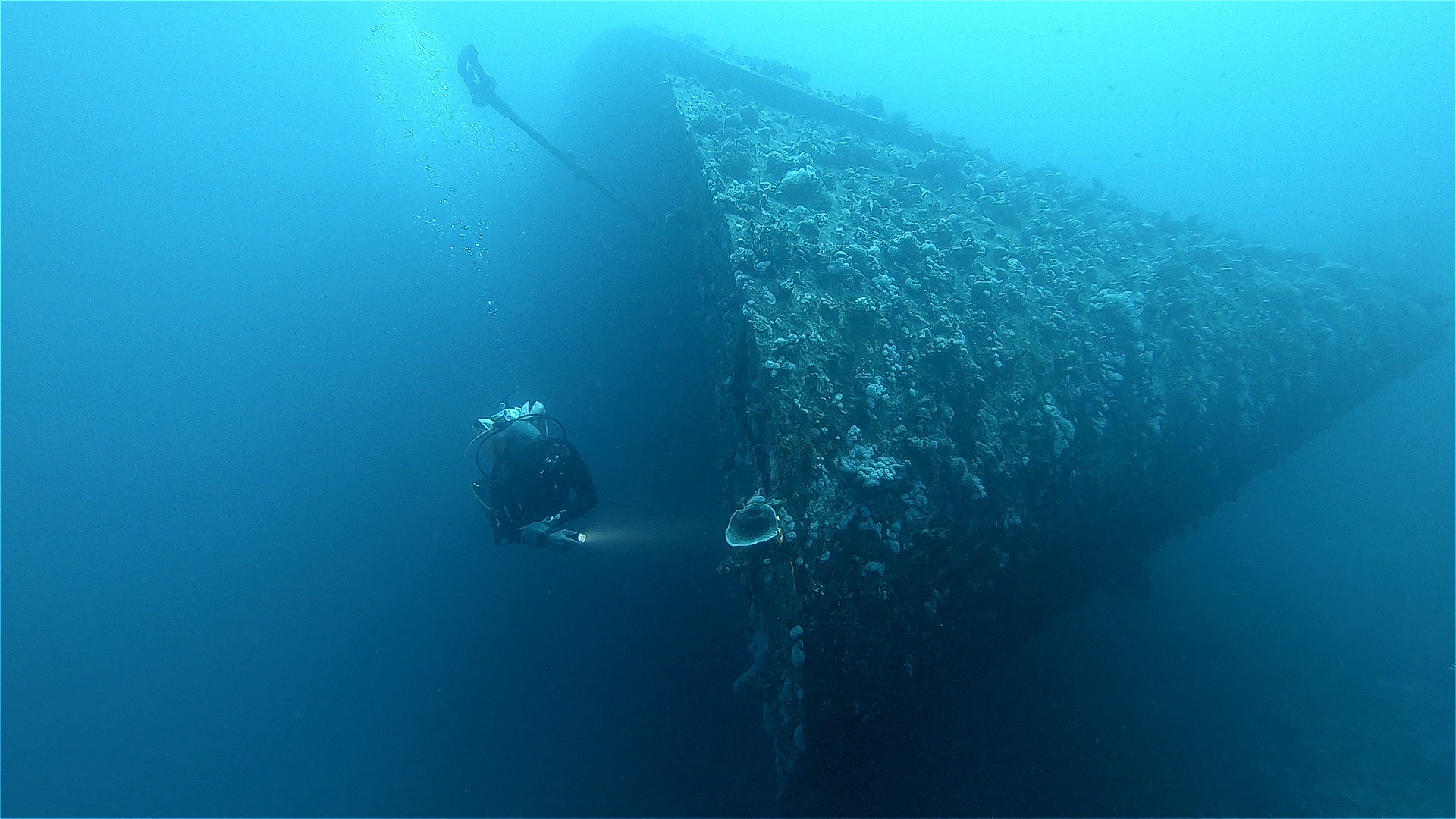
Day three of my trip to Somabay and we were spending the day on the Lady Christina and diving on the wreck of the Salem Express.
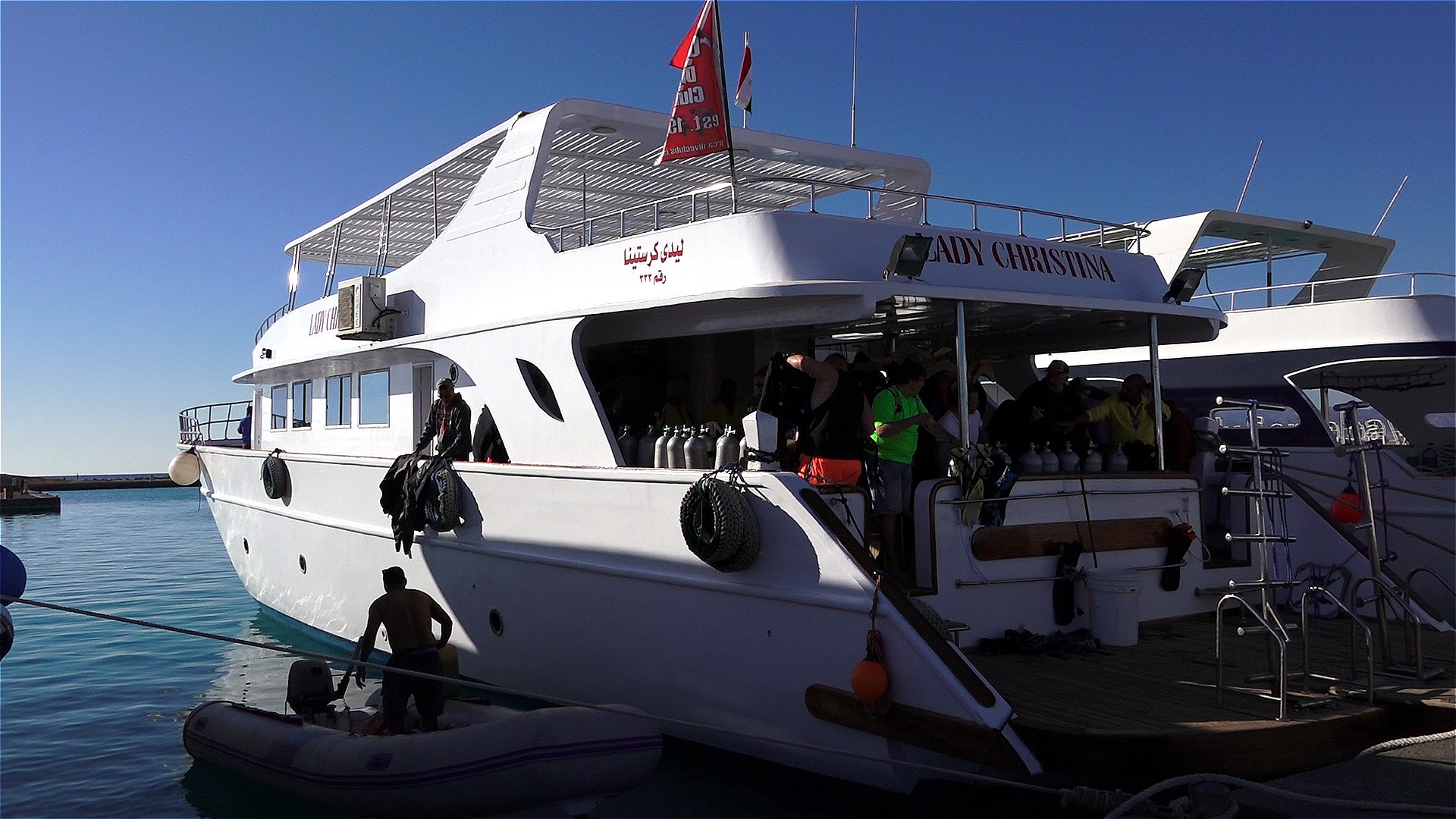
Diving wrecks for me is always one of mixed emotions. The excitement of diving a wreck is more than often tempered by the thought of loss of life when she sank. The Salem Express was a passenger ship and a roll-on/roll-off ferry travelling from Jeddah, Saudi Arabia to Safaga, Egypt. Most passengers were of poor class travelling home from their holidays while around 150 people were returning home from their pilgrimage to Mecca.

The ship struck a reef and sank within 20 minutes. Passengers were trapped below deck and the ship was filled with fear and panic.
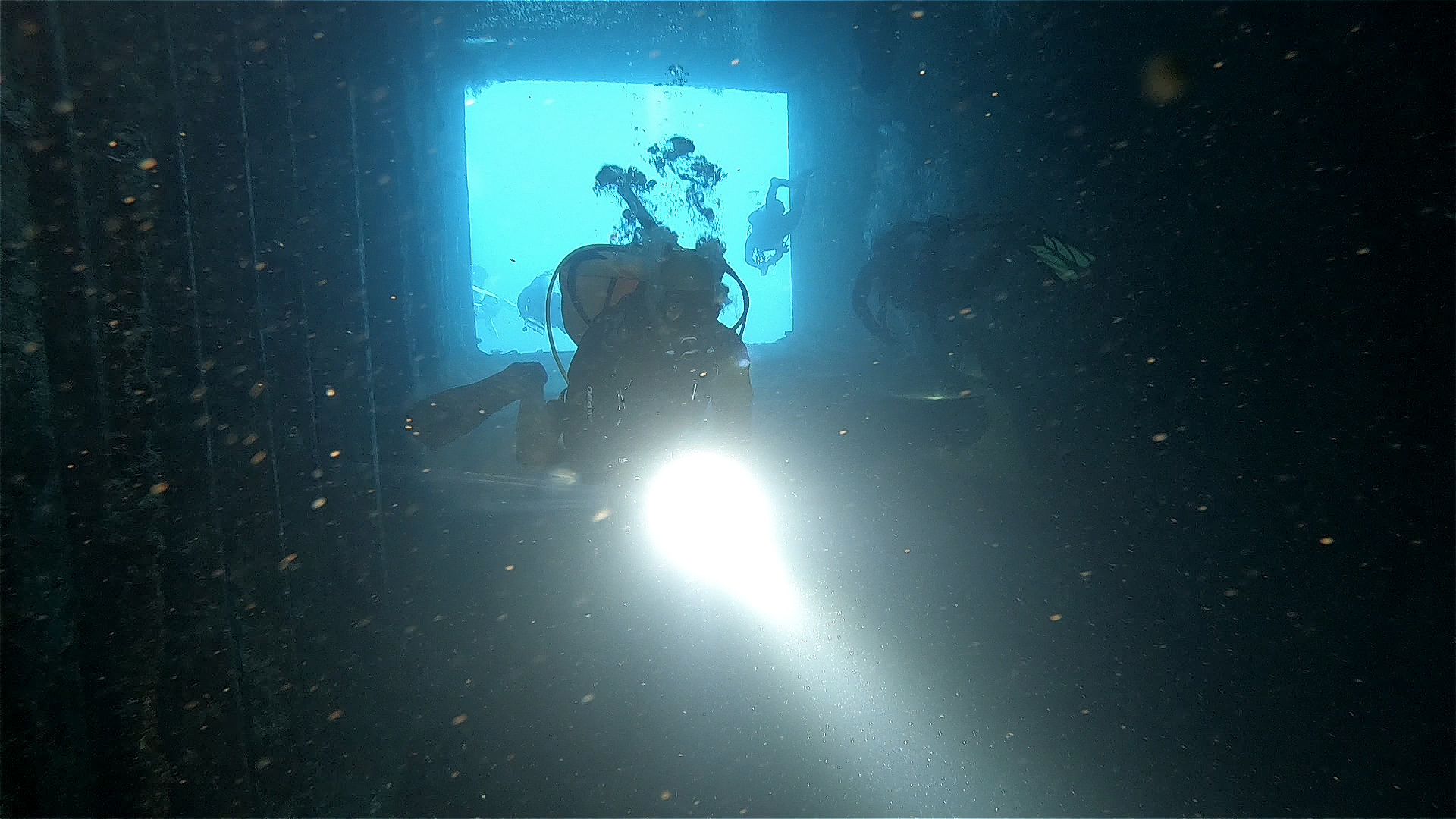
The wreck area is strewn with personal belongings from the crew and passengers such as a transistor radio and a flat iron for clothes. A diver at sometime has put them in a prominent place to be seen.

Tragically only one life boat was launched while the others went down with the ship. More than 600 men, women and children lost their lives here.
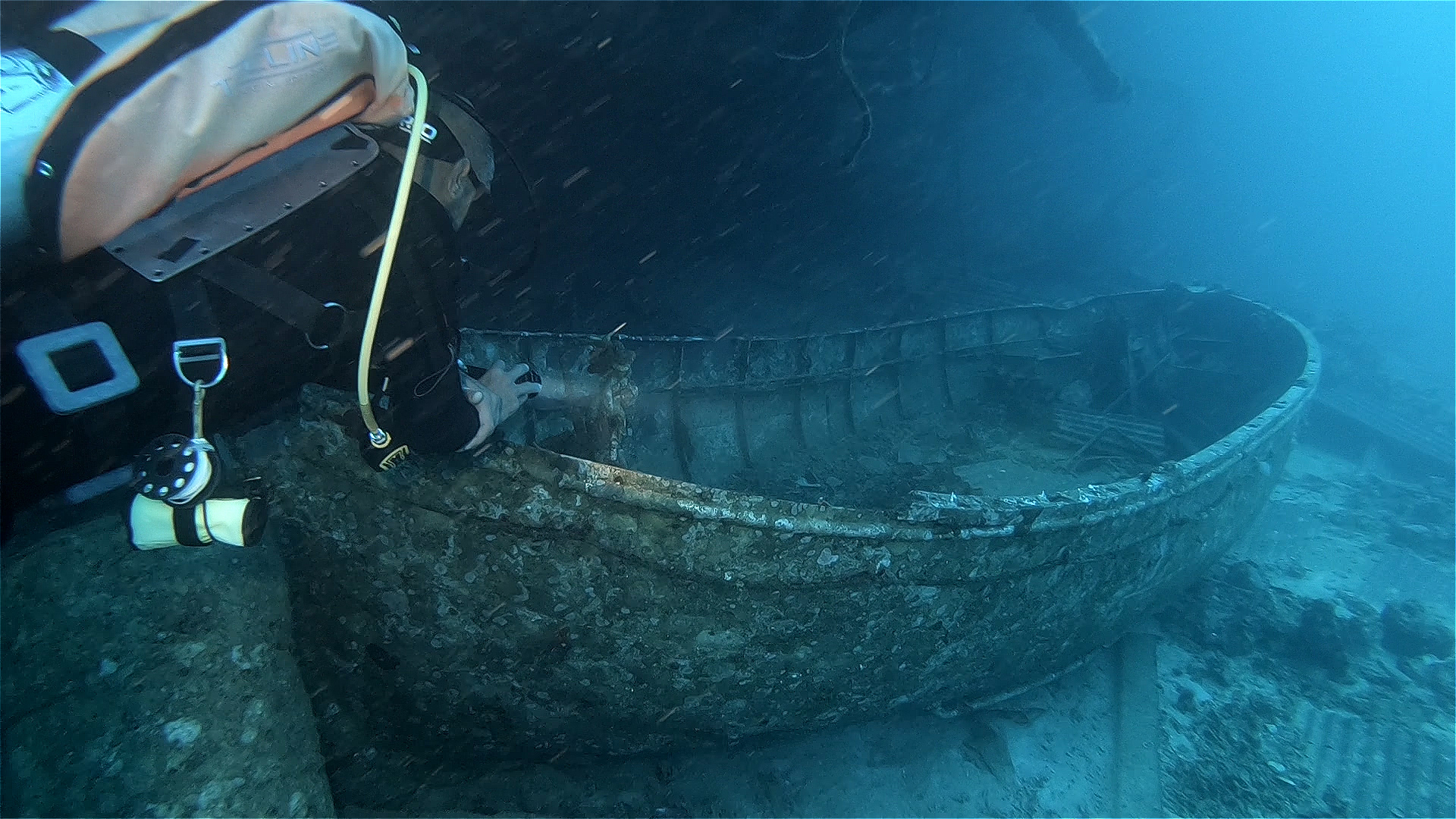
It’s a stark reminder that the sea can be unforgiving and so when we dive on such wrecks we should do so with humble regard.
Returning to the surface, shoals of fish are gathered under our boat and seem to be welcoming us back into the light.
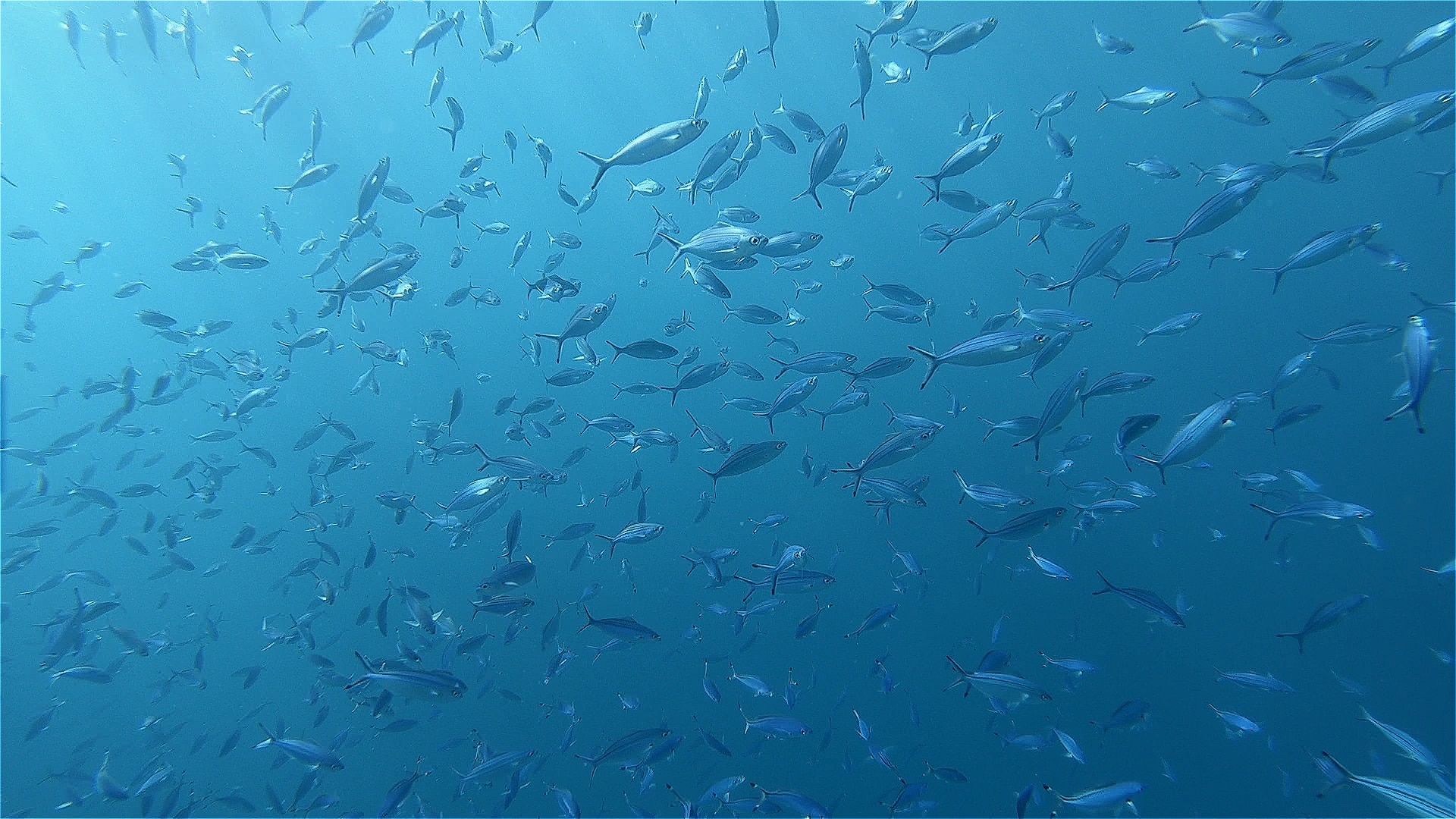
Back at the Breakers I sat in the dining area with a beer and a very good meal while my thoughts still remained with the day’s dive on the Salem Express.
Check in for part 3 tomorrow for Jeff’s last day of diving with Somabay on the off-shore reefs looking for turtles.
Book your next Red Sea dive adventure with SOMABAY! For more information, visit www.somabay.com.
Stay at the Breakers Diving & Surfing Lodge when you visit! For more information, visit www.thebreakers-somabay.com.
Find out more about ORCA Dive Clubs at SOMABAY at www.orca-diveclubs.com/en/soma-bay-en.
-

 News3 months ago
News3 months agoHone your underwater photography skills with Alphamarine Photography at Red Sea Diving Safari in March
-

 News2 months ago
News2 months agoCapturing Critters in Lembeh Underwater Photography Workshop 2024: Event Roundup
-

 Marine Life & Conservation Blogs2 months ago
Marine Life & Conservation Blogs2 months agoCreature Feature: Swell Sharks
-

 Blogs1 month ago
Blogs1 month agoMurex Resorts: Passport to Paradise!
-

 Gear News3 months ago
Gear News3 months agoBare X-Mission Drysuit: Ideal for Both Technical and Recreational Divers
-

 Blogs2 months ago
Blogs2 months agoDiver Discovering Whale Skeletons Beneath Ice Judged World’s Best Underwater Photograph
-

 Gear Reviews2 months ago
Gear Reviews2 months agoGear Review: Oceanic+ Dive Housing for iPhone
-
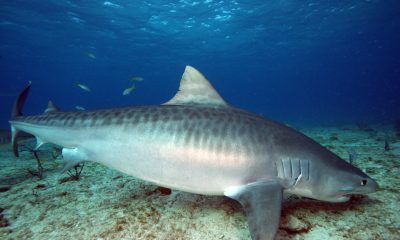
 Blogs3 months ago
Blogs3 months agoThe Thrilling Encounter with Tiger Sharks at Beqa Lagoon’s ‘The Colosseum’ with Coral Coast Divers


